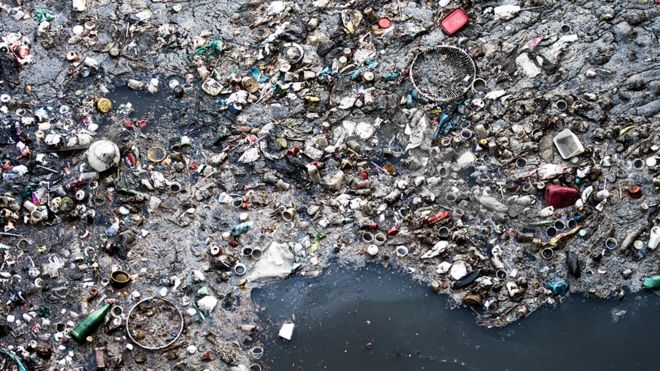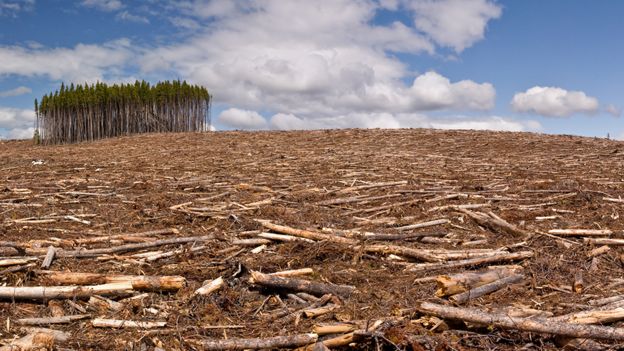
The "human footprint" is creating multiple challenges, including a trash crisis in the oceans
Politicians and policymakers have failed to grasp the gravity of the environmental crisis facing the Earth, a report claims. The think-tank IPPR says human impacts have reached a critical stage and threaten to destabilize society and the global economy.
Scientists warn of a potentially deadly combination of factors. These include climate change, mass loss of species, topsoil erosion, forest felling and acidifying oceans. The report from the Institute for Public Policy Research says these factors are "driving a complex, dynamic process of environmental destabilization that has reached critical levels. "This destabilization is occurring at speeds unprecedented in human history and, in some cases, over billions of years."
So what is needed?
The IPPR warns that the window of opportunity to avoid catastrophic outcomes is rapidly closing.The authors urge three shifts in political understanding: on the scale and pace of environmental breakdown; the implications for societies; and the subsequent need for transformative change.
They say since 2005, the number of floods across the world has increased by 15 times, extreme temperature events by 20 times, and wildfires seven-fold.
At least climate change features in policy discussions, they say – but other vitally important impacts barely figure.
Extreme forest logging
What issues are being under-played?
- Topsoil is being lost 10 to 40 times faster than it is being replenished by natural processes
- Since the mid-20th Century, 30% of the world's arable land has become unproductive due to erosion
- 95% of the Earth's land areas could become degraded by 2050
The report warns: "We define this as the 'age of environmental breakdown' to better highlight the severity of the scale, pace and implications of environmental destabilization resulting from aggregate human activity."
Will society take the solutions offered?
Simon Lewis, Professor of Global Change Science, said,"Future problems with food supplies could cause price spikes that drive civil unrest, while increases in levels of migration can strain societies.
"Both together could overload political institutions and global networks of trade.
"This century will be marked by rapid social and environmental change - that is certain. What is less clear is if societies can make wise political choices to avoid disaster in the future."
Harriet Bulkeley, a geography professor, said, that the IPPR paper was a good interpretation of the current evidence, but she said it raised the question of how firm evidence of environmental threats had to be to prompt governments to action.
"We know lots of good things to do," she said, "but often the argument is made that we need to have 'evidence-based policy'.
"This can, of course, be used as an excuse for delay. So, I guess the question is how much more evidence is needed for action?"


Aunt Jeannie,
ReplyDeleteYes the world is in an environmental crises ; Mr. Trump , most of his cabinet , all the deniers need to do as mama say , they need to poop or get off the pot ,mama says when you try to explain something to dummies , they is to stupid to understand you have to get down to their level , mama has a lot of saying .
Ms. Harriet Bulkeley raised the question what it would take to get the governments into action , if some of their officials step outside and they start smoking from the heat that would be a start .
Love
Knight Sha